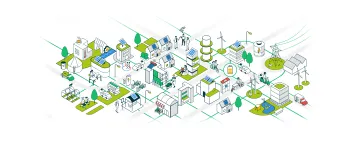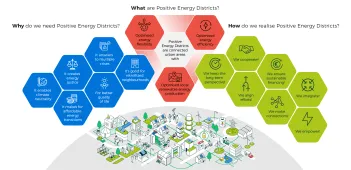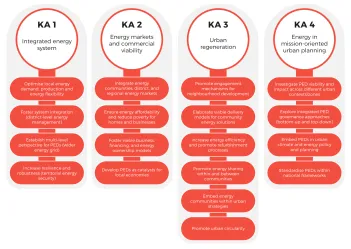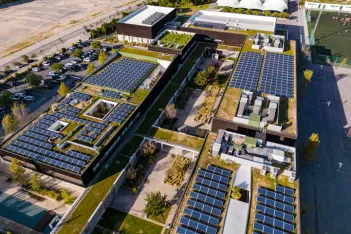Positive Energy Districts

By combining energy efficiency, renewable energy production, and energy flexibility at the local level, PEDs offer and contribute to affordable energy systems, affordable quality housing, and competitive, resilient and inclusive local economies for cities through energy communities, contributing to European goals such as the SET Plan and the EU Mission on Climate-neutral and Smart Cities.
What are Positive Energy Districts?
Positive Energy Districts (PEDs) are energy-efficient and energy-flexible urban areas, which produce local renewable energy, achieve net zero greenhouse gas emissions and play an active role in the energy system for achieving overall climate neutrality.

Key areas of Action
The PED TP focuses on four Key Areas of Action (KAs): Integrated Energy System, Energy Markets and Commercial Viability, Urban Regeneration, Energy in Mission-oriented Urban Planning.
These shape the overall strategy, guide annual calls, and help structure activities. They are interconnected and explored through DUT’s four Impact Dimensions: Culture and values, Governance and policy, Technologies and infrastructure, and Business models and tools.

Want to learn more? You can read more about the thematics and future call topic priorities in the DUT Roadmap.
